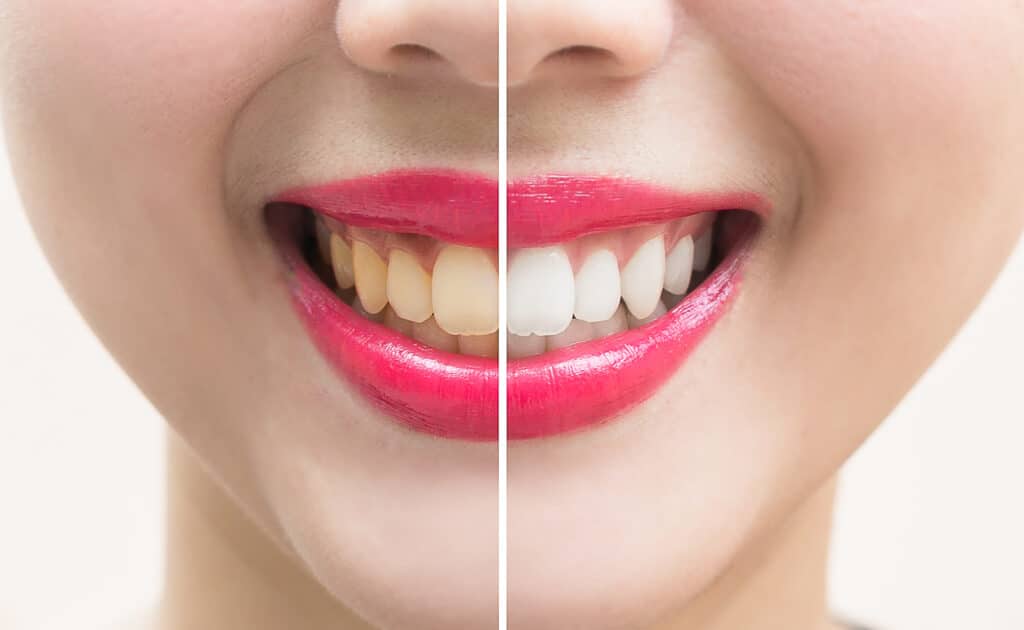The importance of oral hygiene cannot be overstated. Not only does maintaining optimal oral health ensure a sparkling smile, but it also plays a significant role in enhancing overall well-being. However, navigating the world of oral care can be daunting, with many questions popping up. To help you make informed decisions about your oral hygiene, we’ve compiled a list of frequently asked questions and provided expert answers.

#1. How Often Should I Brush My Teeth?
Brushing your teeth at least twice per day is crucial for maintaining good oral hygiene. Ideally, you should brush in the morning and before going to bed, using a soft-bristled brush and fluoride toothpaste. Remember to brush for at least two minutes, ensuring you clean all surfaces of your teeth and gums.
#2. Is Flossing Really Necessary?
It may not be very fun, but flossing is an integral part of oral hygiene. Flossing helps remove food particles and plaque from the places your toothbrush can’t reach, like the nooks and crannies between teeth and along the gumline. Try to floss at least once a day, preferably before bedtime, to reduce your risk of gum disease and cavities.
#3. Am I Supposed to Brush or Floss First?
It may sound strange, but recent research has shown that flossing before brushing is the way to go. Flossing loosens the plaque, food particles, and bacteria from between the teeth, and brushing and rinsing flush them out. If you usually brush first, try switching it up!

#4. Can I Whiten My Teeth at Home?
While there’s a plethora of over-the-counter whitening products out there, they are not usually as effective as professional treatments. It’s best to consult with your dentist before attempting to whiten your teeth so they can assess your oral health and recommend effective whitening options tailored to your needs.
#5. Are Electric Toothbrushes Better Than Manual?
Electric and manual toothbrushes can both be effective if used correctly. Electric toothbrushes may offer certain advantages, like built-in times and oscillating bristles, which can enhance plaque removal; however, the most crucial factors are your brushing consistency and technique.
#6. How Can I Prevent Bad Breath?
Good oral hygiene — including brushing your teeth and tongue, flossing every day, staying hydrated, and avoiding foods with strong odors — is key to preventing bad breath. If bad breath persists despite these preventative measures, it could indicate an underlying medical or dental issue, so it’s essential to talk to your dentist about your concerns.
#7. What Role Does Diet Play in Oral Health?
Your diet has a significant impact on your oral health. Consuming lots of sugary and acidic foods and beverages can contribute to tooth decay and erosion. On the other hand, a balanced diet rich in fruits, veggies, and calcium can help strengthen your teeth and gums. Try to limit sugary snacks and drinks and brush your teeth afterward.
#8. How Can I Protect My Teeth During Sports?
If you’re a sports or fitness enthusiast, it’s vital to protect your teeth from injury during high-impact physical activities. Wearing a mouthguard custom-made by your dentist can protect you from dental trauma caused by impacts or falls.
#9. What Should I Do in a Dental Emergency?
If your tooth is knocked out, a restoration is broken, or you have a severe toothache, you must seek immediate dental care. Contact your dentist as soon as possible for emergency treatment. In the meantime, you can reduce swelling and discomfort by rinsing your mouth with warm water and applying a cold compress.
#10. How Can I Encourage My Children to Practice Good Oral Hygiene?
Instilling good oral hygiene habits from a young age is crucial for your children’s long-term dental health. Set a good example by demonstrating proper brushing and flossing techniques, and make it fun by using colorful toothbrushes, flavored toothpaste, and small incentives as rewards for positive behavior.
#11. How Often Should I Visit the Dentist for Check-Ups?

While brushing and flossing are important parts of your oral hygiene routine, they are not enough to protect you from potential issues. Regular dental check-ups are also crucial for maintaining oral health. Most dentists recommend making an appointment every six months for a professional cleaning and examination. These visits allow your dentist to detect any issues in the early stages and provide personalized advice on oral hygiene practices.
If it’s time for a visit to the dentist, consider making an appointment with our team at Eric Felt DDS. We would love to be your partner in oral health and help you enjoy a lifetime of healthy smiles.


